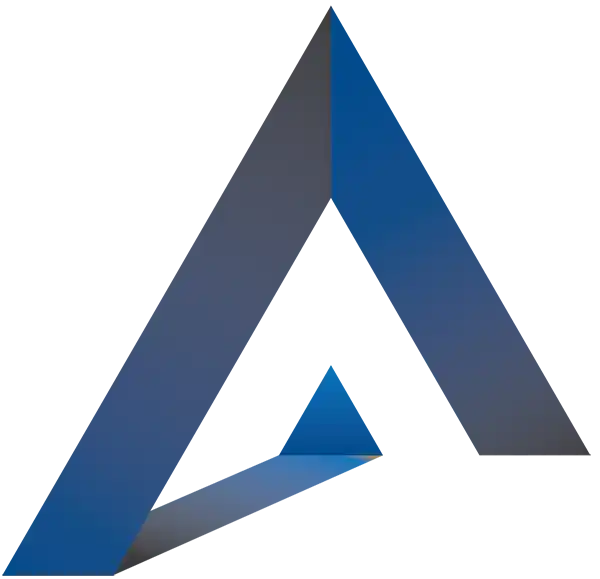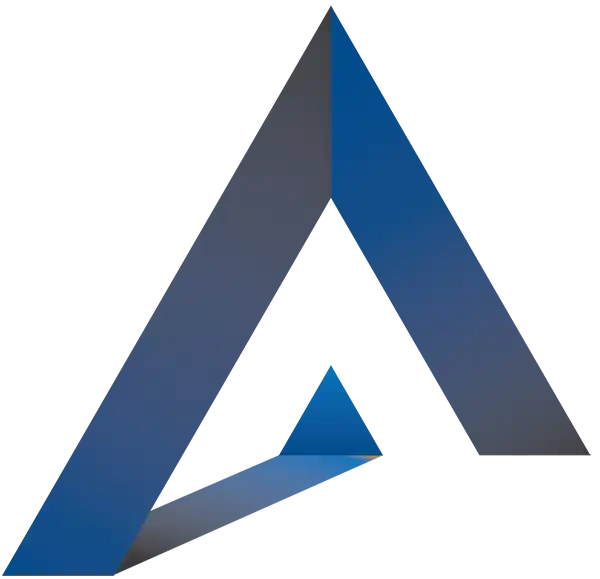Mortgage Blog
Getting you the mortgage you deserve
Mortgage Rates Explained: How to Secure the Best Deal for Your Home Loan?
March 13, 2025 | Posted by: Dominion Lending Centres National Advantage Mortgages

Mortgage Rates Explained: How to Secure the Best Deal for Your Home Loan
Being a homeowner is certainly the biggest accomplishment in Canada. However, most buyers find that paying for a property entirely isn't a feasible choice in places like Windsor, Ontario, where housing prices are rising each day. Mortgages are useful in this situation. With a mortgage, you can finance the purchase of your house by spreading out payments over time and accumulating equity.
The problem is, not all mortgage loans are as convenient as they claim to be. Depending on the mortgage rate you get, you can save thousands of dollars or end up spending too much in interest. Knowing how mortgage rates operate will help you make wise financial decisions, whether you're refinancing or buying a home for the first time.
Our specialty at DLC Advantage Mortgage lies in assisting residents of Windsor and Ontario in obtaining the most competitive mortgage rates that meet their specific requirements.
This descriptive guide will break down mortgage rates for home loans, explain the factors that influence them, and provide you with tips on getting the best possible offer.
What Are Mortgage Rates and Why Do They Matter For Home Loans?
Mortgage rate is, when lenders charge interest on house loans. A small change in interest rates can have a big impact on your mortgage's overall cost.
The cost of home ownership is influenced by a number of factors, including your mortgage interest rate, homeowners insurance premium, property tax bill, and principle. You can better prepare yourself to buy or refinance a property if you know how your mortgage rate is calculated.
Take this into consideration: An interest rate difference of 0.5 percent on a $400,000 mortgage might result in thousands more in interest payments or savings of that much.
For example, a 5-year fixed mortgage rate in Ontario provides steadiness in your finances, but choosing the incorrect rate structure may ultimately cost you more. By understanding the key influence that affect mortgage rates, you may make well-informed decisions that support your financial objectives.
Factors That Influence Mortgage Rates in Ontario
#1. The Bank of Canada’s Policy Rate
Mortgage rates nationwide are directly impacted by the benchmark interest rate established by the Bank of Canada (BoC). Rate increases by the BoC usually result in higher borrowing costs, which drives up the cost of mortgages. Rate reductions, on the other hand, may result in reduced mortgage rates, providing homeowners and buyers with an opportunity to secure better terms.
Pro Tip: Stay updated with the announcements from the BoC regarding the current or future mortgage rates Ontario prediction. Getting a lower rate in advance could save you hundreds of dollars if a rate hike is anticipated.
#2. Economic Conditions and Inflation
Inflation and economic changes have a big influence on mortgage rates. For example, the 2022 inflation spike resulted in several rate increases by the BoC, which raised mortgage rates. Lenders increase interest rates to offset growing expenses during periods of high inflation. On the other hand, rates may be lowered to encourage borrowing and investment during recessions.
#3. Credit Score and Financial Profile
Before determining a mortgage rate, lenders thoroughly consider your credit score, income stability, and general financial well-being. Because they represent less risk to lenders, borrowers with higher credit scores are frequently rewarded with lower rates.
Quick Tip: Look for any mistakes on your credit record and try to raise your score before applying for a mortgage. You can get better rates by lowering your debt and making on-time bill payments.
#4. Your Mortgage Features & Their Impact on Payments
The features you choose for your mortgage and your prior credit history have a big impact on your final payment. Your mortgage rates are directly impacted by the degree of risk that lenders assess while reviewing your application. Interest rates are often higher for higher risk.
#5. Repayment or Credit Risk
The risk that you won't be able to repay the loan is one of the main worries for lenders. By clearly informing lenders that you have a reliable history of debt repayment, a high credit score helps allay this concern. Because of this, those with better credit ratings can be eligible for lower interest rates than people with worse scores.
If your mortgage exceeds 80 percent of the value of your house, you will need to buy mortgage default insurance. You may be able to get a cheaper interest rate than you would if you choose an uninsured mortgage that needs a higher down payment because this insurance shields the lender from the danger of default.
#6. Interest Rate Risk
Although terms for mortgage loans in Ontario can range from six months to ten years, the majority of these loans are renegotiated every five years. You run the danger of interest rate changes if you renegotiate frequently. If you would rather have fixed rates for extended periods of time, be ready to pay more for the convenience. When it comes to renegotiating, keeping up with mortgage rates Ontario news will help you make wise choices.
#7. Prepayment Risk
Prepayment risk is the possibility of financial loss for lenders if you pay off your mortgage early. This occurs because, particularly if interest rates have dropped since your mortgage started, the lender will not make as much money off of the money that was originally raised.
Generally speaking, a 'closed' mortgage, which restricts your ability to make early payments, will have a lower interest rate than a 'open' mortgage, which allows you to do so. Planning your repayment plan will be easier if you keep an eye on Ontario's mortgage rate forecast and trends for 2025.
How to Secure the Best Mortgage Rates?
- Compare Lenders and Brokers
You can save money by shopping around. Different rates are offered by banks, credit unions, and mortgage brokers like us at DLC Advantage Mortgage. Brokers can bargain for better terms on your behalf and frequently have access to exclusive bargains.
- Use a Mortgage Calculator
A mortgage calculator help you in estimating your monthly payments by using different rates and loan arrangements. This tool might help you have a better understanding of affordability and budgeting.
- Improve Your Credit Score
To improve your creditworthiness:
- Make timely bill payments.
- Cut down on outstanding bills.
- Do not take out new debts prior to submitting a mortgage application.
- Lock in Your Rate at the Right Time
Locking in a cheaper rate now can save you thousands later if you expect rates to rise. To make the most of the timing of your mortgage application, keep an eye on Ontario's projected mortgage rates for 2025 and beyond.
- Consider Shorter Loan Terms
Shorter loan durations drastically cut the total amount of interest paid, even though longer loan terms have lower monthly payments. Consider a 15- or 20-year mortgage rather than a 30-year term if your budget permits.
Fixed vs. Variable Rates: Which Is Right for You?
Whether you're applying for personal loan, credit card, refinance, or a new mortgage, understanding the main distinctions between fixed and variable interest rates will help you save your money and accomplish your financial goals.
Variable Interest Rate Loans
A variable interest rate loan is one where the interest rate applied to the remaining balance fluctuates in tandem with changes in market interest rates. A variable interest rate loan's interest rate is correlated with an underlying index or benchmark, like the federal funds rate.
Your payments will therefore differ as well (as long as your payments are blended with principal and interest). Mortgages, credit cards, personal loans, derivatives, and corporate bonds all have variable interest rates.
Pros
- When interest rates decline, loan repayments also decrease.
- Better upfront benefits, such as low introductory rates for the first loan period, are usually offered to loans.
- In general, variable loans have lower interest rates than fixed loans, particularly at the time of loan incurrence.
Cons
- When interest rates rise, loan repayments also climb.
- If interest rates increase rapidly, loans may end up costing more than fixed rate loans.
- If borrowers are overcapitalized or have already reached their repayment capability, they are at a higher risk.
- Because of fluctuating rates, borrowers might not be able to plan or predict their future financial flow.
Fixed Interest Rate For Home Loans
Fixed interest rates have an interest rate that stays the same for the duration of the loan, despite changes in market interest rates, As a result, your payments will be constant throughout the duration. The interest rate climate at the time the loan is taken out and the length of the loan will determine whether a fixed-rate loan is beneficial for you.
For the course of its tenure, a fixed loan remains at the market interest rate that prevailed at the time, plus or minus a borrower-specific spread. .
Pros
- When interest rates are rising, fixed rates do not increase.
- Regardless of changes in market rates, borrowers are aware of exactly how much they will pay each month.
- Many loans, from 6-month to 10-year non-mortgage loans, allow borrowers to choose their own time periods.
Cons
- Fixed rate agreements limit the flexibility of loans.
- When interest rates are falling, fixed rates do not decrease.
- If the borrower wishes to modify the terms or terminate the loan early, there may be additional expenses associated with fixed term fees.
- Historically, variable rate loans have been less expensive over time than fixed rate loans.
Which Is Better?
Rising interest rates can affect your payments more if the amortization time is longer. The borrower's choices and financial situation will determine whether a fixed rate loan or one with a variable rate is preferable.
Start by evaluating your need for security, financial flexibility, and cash flow. Not everyone will be in the same circumstance, and the range of financial loan options can accommodate the borrower's preferences.
What to Expect for Mortgage Rates in 2025?
Government initiatives, inflation patterns, and economic recovery are likely to impact mortgage rates in 2025. According to experts, rates may continue to rise if inflation stays high, which makes it even more important to lock in a favorable rate while options are still available.
Keep yourself informed. Working with a reputable mortgage broker guarantees that you will receive knowledgeable advice that is adapted to the changing market conditions.
DLC Advantage Mortgage Can Help You Get the Best Mortgage Rates!
Securing the best deal for your financial future is more important than simply figuring out the best mortgage rate for home loans. Working with our professional mortgage brokers might be crucial in light of rising home values and shifting interest rates.
We at DLC Advantage Mortgage work closely with homebuyers in Windsor and Ontario, offering professional advice and get the most competitive mortgage rates. We are here to assist you in making wise choices and ultimately saving money, whether you are investing in a new home, refinancing, or buying your first home.

